I have been Jinghu all my life, each one is unique
A small studio is Lao Zhou's whole world
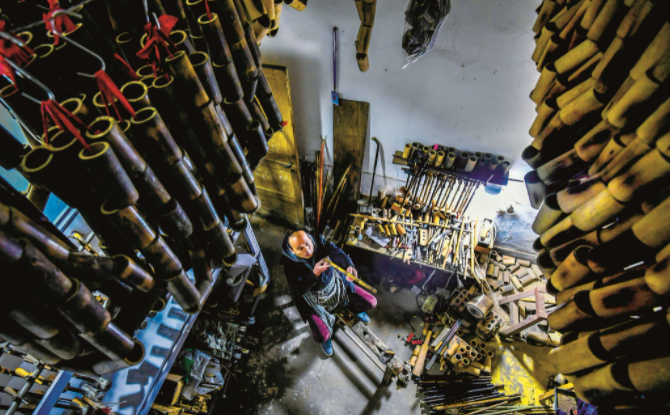
Carefully selected snakeskin
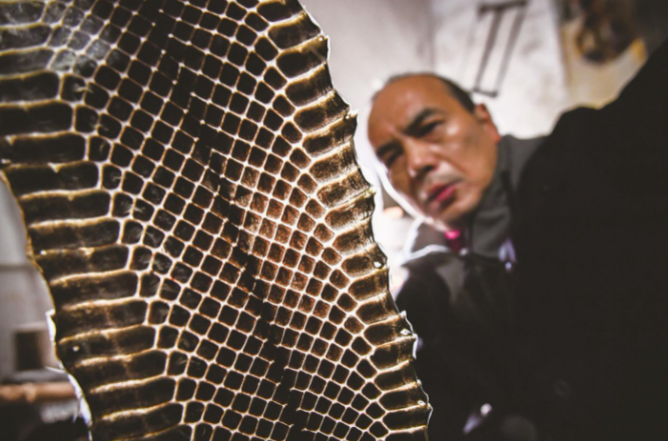
Tuning Jinghu
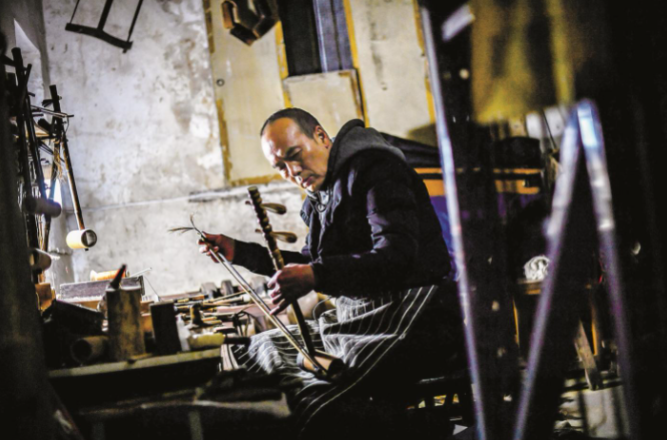
On the corridor of the old house, Lao Zhou rarely has time to come and pull a song
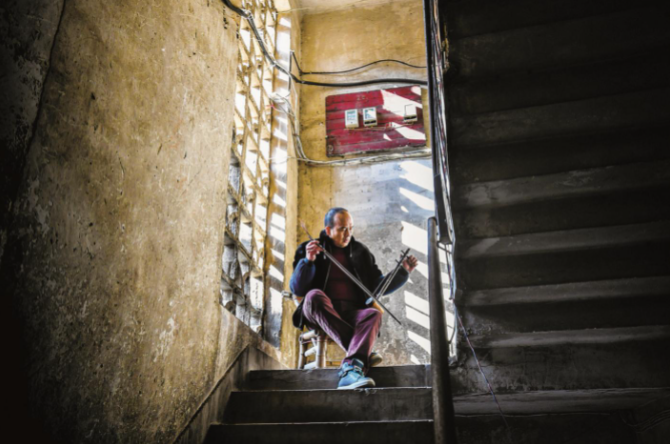
The iron frame on one side is full of Jinghu sent from various places that need to be adjusted by Lao Zhou.
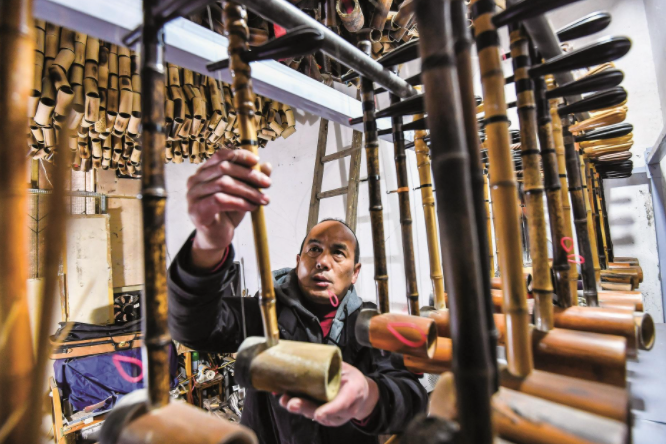
On the roof, there are Jinghu bobbins that have been dried for many years. The longest is more than 70 years old, and the shortest is more than 50 years old.
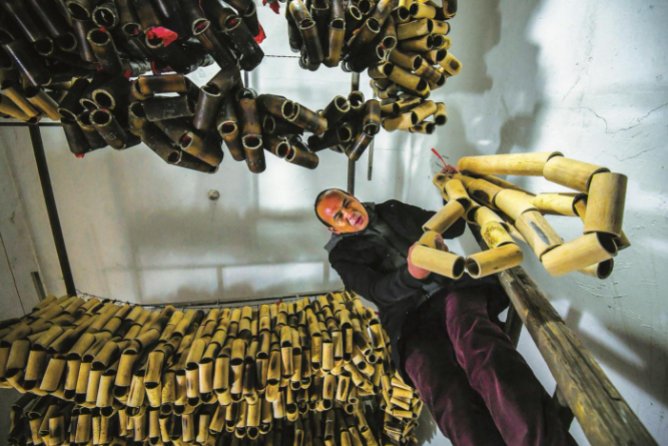
I have been Jinghu all my life, and each one is unique.
In a small alley next to the Holy Temple on Qianchuan Street, Huangpi District, Wuhan City, a violin maker who was hidden in the city made his work on Thursday. With his unique skills, he met the needs of major theater troupes inside and outside the province.
Jinghu, also known as Huqin, is an accompaniment instrument for Peking Opera. The piano-making stunts posted on Thursday were meticulous in the dozens of tedious steps in piano-making, and can be summed up in just two words, that is, "careful".
Careful selection of materials is a prerequisite for the success of a Jinghu.
The stems and barrels made of Jinghu bamboo, the snake skin covered with the mouth of the barrel, the ponytail bow, and the wooden pegs are all exquisite. There are nearly ten kinds of bamboo, rhododendron, purple bamboo, and spotted bamboo alone. In order to find the best raw materials, I often go south and north to go to the mountains to cut bamboo. Fortunately, I got lost in the mountains. Unsurprisingly. The Hsinchu brought back has to go through various processes such as cutting, fixing, storage, rounding, and straightening.
It is carefully designed because the people who play Jinghu are different.
For female violinists with small palms, the distance between the stem and the pegs should be narrowed; for Jinghu played by the elderly, the tune should be properly adjusted at the top of the barrel. The tightness of the skin of the Jinghu mouth, the width of the hook, the length of the piano shaft, and the size of the sound window will all vary from person to person. The piano player's control over the performance of Jinghu's sound quality, timbre, and tone.
Tuning carefully is because there will never be the most perfect Jinghu.
In the ancient tune of the qin, it refers to the breeze, and the "sound" is the soul of Jinghu. In a corner of the studio, playing a newly made Jinghu is a necessary part of making a violin on Thursday. Feel the timbre of the qin, the sound of the qin, and the character of the qin, look for its "weakness", and sculpt it repeatedly. Like training a puppy, obediently, and like feeding a young eagle, let it fly freely.
From the age of 13, he entered the County Chu Opera Troupe, went to Wuhan Art School to learn Jinghu performance, and later studied with Jinghu master Zhang Yunsheng. Today, Thursday's fame has spread far and wide. The unique crafts such as "bamboo straightening" and "leather frame making" can be regarded as a must, and many people are attracted to study the art. Although he is over fifty years old, he has a higher goal in his heart on Thursday.
Peking Opera has been around for three hundred years, but very few of them have been handed down to Beijing Hu. The heart of a craftsman is only to constantly pursue works that are "excellent in form and spirit".
 渝公网安备 50010702504639号
渝公网安备 50010702504639号